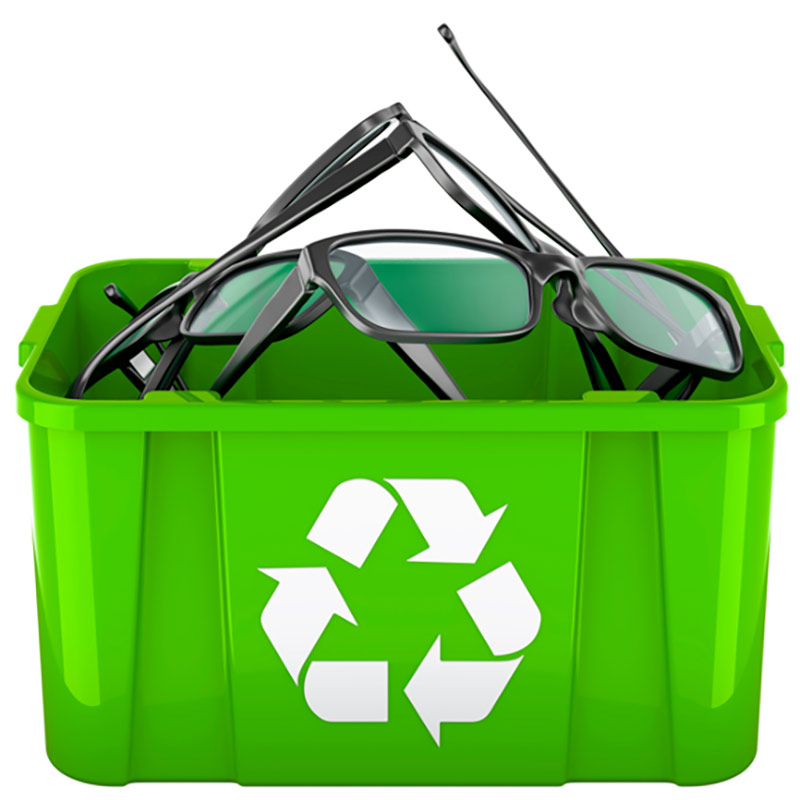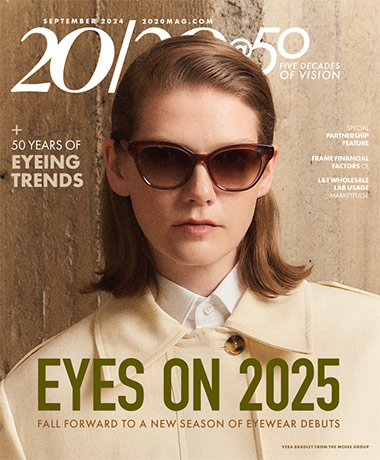By Preston Fassel

They say everything that’s old becomes new again, but, what if it was never old in the first place?
That’s a topic that’s been on my mind a lot lately as I’ve been working in my synagogue’s community garden. The building sits on some particularly fertile soil that, with the help of some Master Gardeners and inventive use of flower beds and greenhouses, has lent itself to becoming a food source for Dallas’ thriving but vulnerable immigrant community. Compost is a major component of the garden, and people are encouraged to bring in their own food scraps and waste to contribute to the heap. It’s the perfect fate for something once useful that’s now lived past its prime.
And because I am who I am, that got me thinking about glasses.
In my many years in optical, I’ve witnessed a lot of closures. As online optical has boomed, the economy has struggled, and more chain dispensaries have cropped up, it’s become harder for independent brick-and-mortars to stay afloat. I’ve even seen my fair share of franchises and co-op dispensaries go under. This is always a sad situation, and the priority should be to find unemployed opticians new work. As the saying goes, though, the Chinese word for crisis is the same as for opportunity (well, almost), and a doctor I worked for used to stay on the lookout for closures for another reason: frames.
For many opticals, the fate of frames that don’t sell is the standard return. Your rep will come in to do an inventory, and you’ll note X model isn’t moving, or they’ll tell you Y line turned out to be a dud. Fill out a sheet and into the frame tray they go, destined for parts unknown while your board space awaits specs that’ll sell. For an optical that’s closing shop, though, that may not be an option for a variety of reasons. In some instances, I saw opticals closing that had frame suppliers that had themselves gone out of business, with nowhere to return the frames.
This is why the doctor I worked for was so eager to identify these shuttering opticals: they’d make generous bulk offers, and he would purchase unsold frames en masse. For the entire nearly five-year stretch I worked for this doctor, we had a spare room full of plastic tubs of frames culled from now defunct dispensaries. These frames constituted our discount package frames. It was a smart idea. Unlike other opticals that might use very inexpensive and/or generic frames for packages, our doctor used frames from shuttered dispensaries. In many cases these were recognizable, designer brand names of moderate to high quality. We offered them at flat rates for single-vision poly with standard AR, an entry-level PAL with standard AR, or standard tinted or polarized sun packages. Patients could tack photochromics on for a flat rate. Frames were warrantied with the understanding the patient may not be able to choose the same frame but could select another from the Package Bin.
This proved to be a successful model for a number of reasons. From the outset, it helped other opticians relieve themselves of inventory and gave them a payday at a stressful time in their lives. It was a boon for many of our patients, a significant portion of whom were blue-collar workers making just enough money not to qualify for certain assistance programs but too little to afford quality insurance. It also served us well at particular times of year, especially Summer, Back to School, and New Year’s. It was helpful to be able to pull out “Package Deal” signage during slower portions of the year. In-office, it could prove an effective sales tactic to bring one of the bins out and let patients search through it. There’s something special about sorting through a bargain box and stumbling across a designer frame being sold as part of a package far below the retail price.
So, as we think about sustainability in eyewear, I suggest finding ways to repurpose those frames that don’t get sold - or can’t get sold - beyond the fate of just getting shipped back to the manufacturer. There’s a good chance the materials will end up going to waste anyway, and by selling those frames in package deals you’ll not only be making good use of them but also endearing yourself to your patients. It’s a neat form of recycling in which everyone gets to see the benefits immediately.












